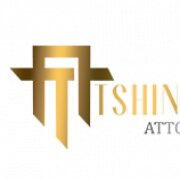Best Tax Increment Financing Lawyers in Thohoyandou
Share your needs with us, get contacted by law firms.
Free. Takes 2 min.
List of the best lawyers in Thohoyandou, South Africa
About Tax Increment Financing Law in Thohoyandou, South Africa
Tax Increment Financing (TIF) is a public financing method used as a subsidy for infrastructure and other community-improvement projects in Thohoyandou, South Africa. It involves capturing the future tax benefits of real estate improvements to pay for the current costs associated with those improvements. In Thohoyandou, TIF is a vital tool to promote urban redevelopment and stimulate economic growth in underdeveloped areas. The local municipality uses TIF to finance redevelopment projects by leveraging the anticipated increase in property taxes that will result from the project.
Why You May Need a Lawyer
Engaging with TIF projects can be complex and involves navigating various legal, financial, and regulatory processes. Reasons you might need a lawyer include:
- Understanding the legal framework and tax implications of a TIF project.
- Negotiating terms and agreements with the municipality and developers.
- Ensuring compliance with local, provincial, and national regulations.
- Resolving disputes or litigations arising from TIF agreements.
- Guidance on leveraging TIF for private development projects.
- Representation in public hearings or meetings concerning TIF proposals.
Local Laws Overview
Several key legal aspects govern TIF in Thohoyandou, and understanding these is crucial:
- Eligibility Requirements: Not all areas qualify for TIF. Designated TIF districts must meet specific criteria, generally focusing on urban blight, underdevelopment, or need for economic stimulation.
- Approval Process: TIF projects require approval from local government entities. This involves public consultations and official endorsements from municipal councils.
- Financing Methods: TIF does not have a direct impact on local taxes but affects future tax increases. It allows municipalities to issue bonds backed by future tax increments to finance the projects.
- Public Participation: Local laws often mandate community involvement and transparency throughout the TIF process. Public meetings and consultations are typical before project approval.
- Regulatory Compliance: All TIF projects must comply with environmental regulations and broader urban planning laws to ensure sustainable development.
Frequently Asked Questions
What is the purpose of Tax Increment Financing?
The primary goal of TIF is to promote economic development and urban renewal by financing public infrastructure improvements and other community projects without burdening existing taxpayers.
Who can initiate a TIF project?
TIF projects can be initiated by local government entities, developers, or community groups interested in urban redevelopment efforts.
How are TIF districts established?
A TIF district is established through a formal application process that includes feasibility studies, public consultations, and approval by local government bodies.
What types of projects can TIF finance?
TIF commonly finances projects like road improvements, utilities, parks, affordable housing, business district development, and other infrastructure enhancements.
Does TIF increase taxes for local residents?
TIF does not increase taxes but uses the increment in property tax revenue from the rise in property values resulting from the improvements to finance the project's costs.
What is a TIF agreement?
A TIF agreement is a legal contract between the municipality and developers outlining the scope, responsibilities, financing, and obligations associated with the TIF project.
How can a property owner benefit from a TIF project?
Property owners may benefit from increased property values and improved public services and infrastructure surrounding their properties.
What is the duration of a TIF district?
The timeframe for a TIF district is typically 20-30 years, sufficient to realize the anticipated tax increment and allow repayment of any issued bonds.
Can TIF funds be used for private purposes?
While TIF is primarily used for public purposes, private entities involved in jointly beneficial projects, like affordable housing, may also access funds under specific agreements and conditions.
Are there risks involved with TIF projects?
Yes, risks include potential underperformance of tax increments, increased developer requirements, economic shifts, and legal disputes, underscoring the importance of thorough planning and legal guidance.
Additional Resources
To learn more about TIF and get additional support, consider contacting:
- Local Municipality Offices: For current TIF areas and projects in Thohoyandou.
- Legal Aid South Africa: Offers guidance and legal representation for qualifying individuals.
- South African Property Owners Association (SAPOA): Provides resources and advocacy for property-related issues.
- National Treasury: Engages in policy making and economic guidelines affecting TIF regulations.
- Development Bank of Southern Africa (DBSA): Supports infrastructure and economic development projects.
Next Steps
If you require legal assistance regarding TIF, consider taking the following steps:
- Gather all relevant documents and information about the TIF project or inquiry.
- Consult with a specialized lawyer who has experience in TIF and local urban development laws.
- Consider scheduling a meeting with your local municipality to discuss the project and gather insights.
- Explore additional resources and research to understand the intricate nature of TIF projects.
Understanding and navigating the complexities of TIF can bring substantial benefits and opportunities for economic development and community enhancement in Thohoyandou, making it imperative to seek informed legal advice when engaging in such initiatives.
Lawzana helps you find the best lawyers and law firms in Thohoyandou through a curated and pre-screened list of qualified legal professionals. Our platform offers rankings and detailed profiles of attorneys and law firms, allowing you to compare based on practice areas, including Tax Increment Financing, experience, and client feedback.
Each profile includes a description of the firm's areas of practice, client reviews, team members and partners, year of establishment, spoken languages, office locations, contact information, social media presence, and any published articles or resources. Most firms on our platform speak English and are experienced in both local and international legal matters.
Get a quote from top-rated law firms in Thohoyandou, South Africa — quickly, securely, and without unnecessary hassle.
Disclaimer:
The information provided on this page is for general informational purposes only and does not constitute legal advice. While we strive to ensure the accuracy and relevance of the content, legal information may change over time, and interpretations of the law can vary. You should always consult with a qualified legal professional for advice specific to your situation.
We disclaim all liability for actions taken or not taken based on the content of this page. If you believe any information is incorrect or outdated, please contact us, and we will review and update it where appropriate.











